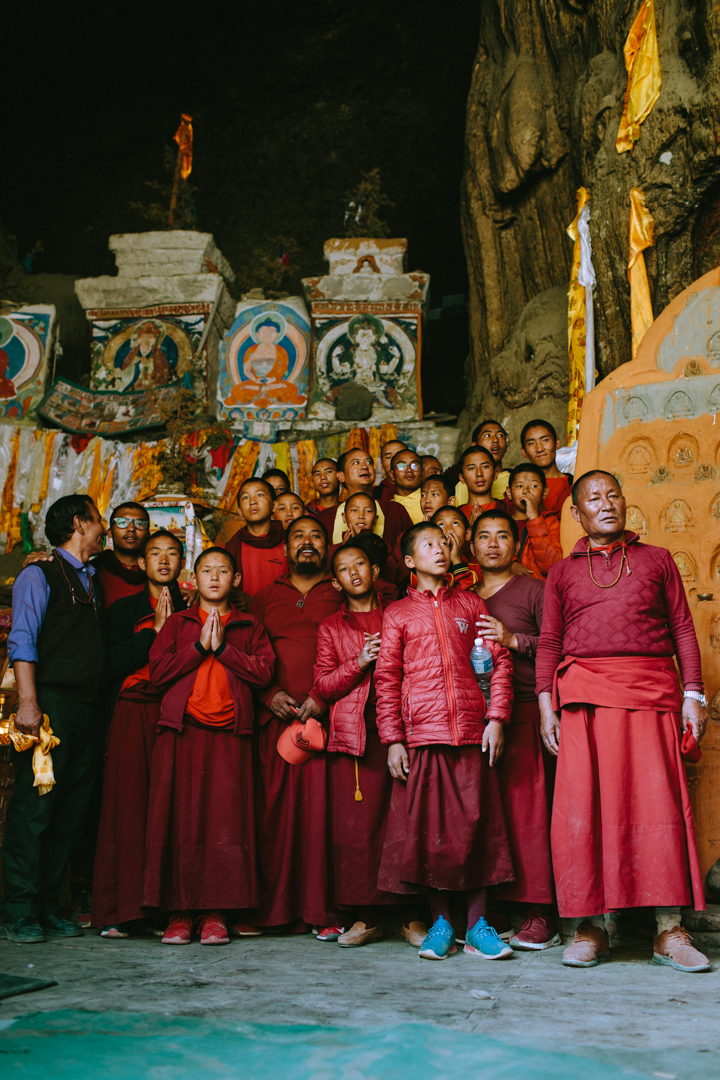Upper Mustang, a hidden region on the cusp of change
- Text by Huck
- Photography by Will Elsom

Mustang is an isolated region in the Nepalese Himalayas, located at the head of the deepest river gorge in the world. While situated within the boarders of Nepal, it’s culturally and ethnically Tibetan: the majority of the population still speak traditional Tibetic languages.
Up until 1992, Upper Mustang – the area that comprises the northern two-thirds of the district – remained a restricted demilitarised zone. Foreigners were not allowed to enter, making it one of the most preserved regions in the world. However, things are slowly beginning to change.
Photographer Will Elsom first set eyes on the region during a trek through Nepal when he visited the small town of Kagbeni, which serves as the entry point to Upper Mustang. Though his trip was taking him in a different direction, he knew – gazing up at the valley from a windy precipice – that he would have to return. Years later, camera-in-hand, he did.

“Mustang feels incomparably vast and beautifully remote,” he says, recalling his time there. “There is an almost constant wind that tears through this valley, an intense reminder that you are part of a planet that has ceaseless weather systems that shape this skeletal landscape and expose the vulnerability of life.”
“Travelling around there is like travelling back in time. There is little vegetation to hide the lines of ancient sediment that paint the hillsides, tracing the history of the land back millions of years – to when the Tethys ocean drained from the Tibetan plains.”


Elsom’s photos, taken during his journey through Upper Mustang, depict a region on the cusp of change. Mustang’s people – the Loba – are dedicated to preserving their culture, but the spectre of globalisation is a growing threat. A road suitable for commercial vehicles connecting India and China is due to be completed, while the embracing of Chinese products – namely food and beer – presents the issue of plastic pollution.
In that sense, Mustang faces a number of challenges. But Elsom (whose photos appear in a zine, titled Upper Mustang, detailing his journey) is hopeful that its cultural identity will remain intact. The Loba, he explains, will continue to carry it with them.
“They have an intrinsic connection with Mustang,” he says. “One that is filled with stories, myths, and a history – which they hold close by their side.”









See more of Will Elsom’s work on his official website.
Enjoyed this article? Like Huck on Facebook or follow us on Twitter.
You might like

In Medellín’s alleys and side streets, football’s founding spirit shines
Street Spirit — Granted two weeks of unfettered access, photographer Tom Ringsby captures the warmth and DIY essence of the Colombian city’s grassroots street football scene.
Written by: Isaac Muk

Remembering New York’s ’90s gay scene via its vibrant nightclub flyers
Getting In — After coming out in his 20s, David Kennerley became a fixture on the city’s queer scene, while pocketing invites that he picked up along the way. His latest book dives into his rich archive.
Written by: Miss Rosen

On Alexander Skarsgård’s trousers, The Rehearsal, and the importance of weirdos
Freaks and Finances — In the May edition of our monthly culture newsletter, columnist Emma Garland reflects on the Swedish actor’s Cannes look, Nathan Fielder’s wild ambition, and Jafaican.
Written by: Emma Garland

Why Katy Perry’s space flight was one giant flop for mankind
Galactic girlbossing — In a widely-panned, 11-minute trip to the edge of the earth’s atmosphere, the ‘Women’s World’ singer joined an all-female space crew in an expensive vanity advert for Jeff Bezos’ Blue Origin. Newsletter columnist Emma Garland explains its apocalypse indicating signs.
Written by: Emma Garland

Katie Goh: “I want people to engage with the politics of oranges”
Foreign Fruit — In her new book, the Edinburgh-based writer traces her personal history through the citrus fruit’s global spread, from a village in China to Californian groves. Angela Hui caught up with her to find out more.
Written by: Angela Hui

We are all Mia Khalifa
How humour, therapy and community help Huck's latest cover star control her narrative.
Written by: Alya Mooro

